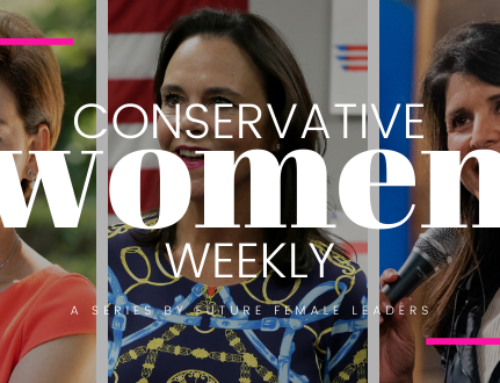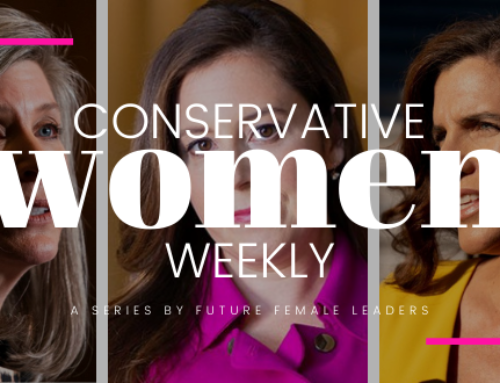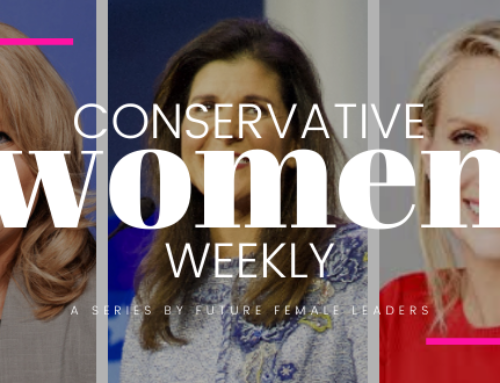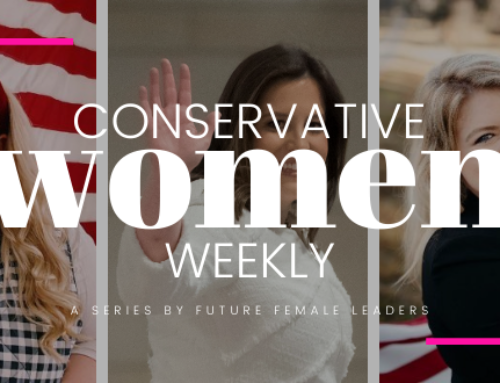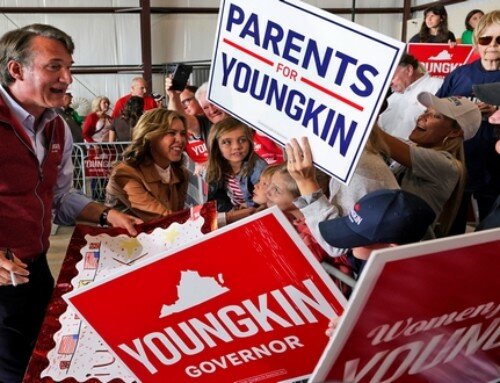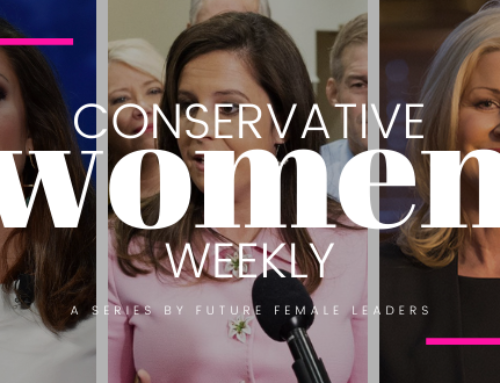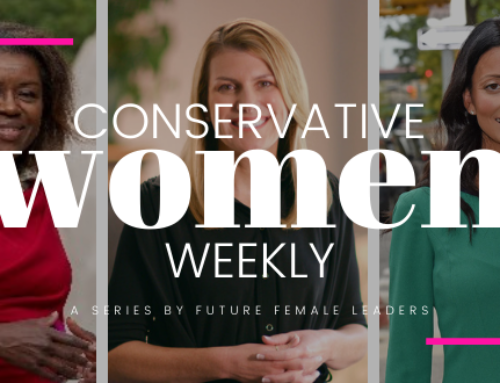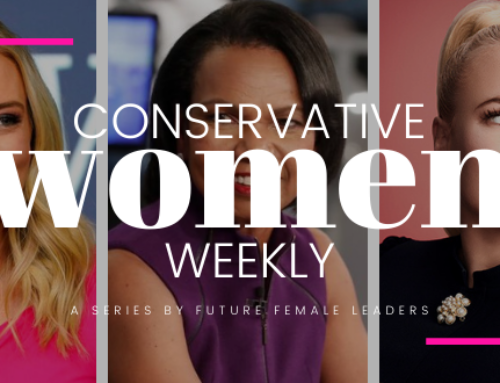How She Got That Internship is a series that highlights conservative women’s internships in various organizations and positions to inspire the next generation of conservative women to lead. Did you, or a young woman that you know, have an internship experience you want to share with our readers? Submit it in this form and we will contact you if we think it would be a great fit for the series.
This was certainly a weird season for internships–with the global pandemic making a lot of internships go virtual. Thinking about the future, girls across the country are dutifully working to prepare for the internships they have landed and thinking ahead to future internships and jobs. FFL is sitting down with a number of interns to reflect on the best internships they’ve had and inspire others to try new things, step outside of their comfort zone, and be the best intern they can be.
Today, we’re talking to Mickey, a college senior and FFL cabinet member who is currently interning for Convention of States.
Mickey is a senior at Widener University, studying political science and communications. She is involved in Young Women for America and is a Future Female Leader Cabinet Member. Aside from politics, Mickey enjoys graphic design, reading and painting. She aspires to one day become the White House Press Secretary. Mickey is currently the Media Marketing intern for Convention of States, for the 2020/21 academic year.
Can you tell us about the Convention of States? What kind of work do they do? What is their mission?
Convention of States (COS) is a nonpartisan, nonprofit organization. Their mission is to rally the states in support of enacting Article V of the Constitution, which allows states to propose amendments to the Constitution. Their legislation, as listed on their website, encourages a convention that is “limited to proposing amendments to the Constitution of the United States that impose fiscal restraints on the federal government, limit the power and jurisdiction of the federal government, and limit the terms of office for its officials and for members of Congress.”
There are five different intern positions: regional director’s intern, grassroots leadership intern, grassroots information systems analyst intern, technology management intern, and the media marketing intern. Though there are only five different areas, there can be more than five interns. The current intern class is seven and each year that number may vary.
How did you find out about the internship opportunities at the Convention of States and what was the application process like?
I first learned of COS at Turning Point USA’s Student Action Summit 2019. They had a booth set up among the vendors, encouraging attendees to sign the petition and get involved with their state committees. Those who attended SAS that year may recall a white Lamborghini in the vendor area; COS rented the car for the convention as a physical representation of every American’s share of the national debt. This immediately caught my attention, I applied for the internship that weekend.
The application was pretty simple and can be done through their website. There are a few questions that pertain to your political and philosophical views, among them asking about books, movies, or speeches which have inspired your political views. A cover letter, resume, recommendation letter, and an unofficial transcript is required. One of my political science professors at Widener University was more than happy to write a letter of recommendation. I’d recommend getting a letter from someone who is politically affiliated or works in a field related to the internship position you’re applying for.
What was a typical day like there? How did you balance your intern work with school, other activities, etc?
Since the internship has always been a remote position, even before COVID, there’s a lot of self-governance in regard to when you work. Even all the full-time employees have always worked from home. Depending on the department you’re interning with, there are specific times for department meetings. Sometimes my classes would conflict with the meetings, but everyone is extremely understanding. I typically tried to do the bulk of my work on the weekends and at the beginning of the week. With the pandemic there’s not too much to do outside of work and school, so I didn’t have too much of an issue balancing everything. Even when I was having a tough week with school, as long as I communicated properly, my supervisors gave me extensions and helped me wherever they could.
Were there other interns that you worked closely with? How did you connect with other interns virtually?
I was the only intern in the Communications department, but there were seven of us total. We would get together once or twice a week to discuss topics such as servant leadership and Western civilization. I can honestly say I’ve made amazing friends with the other interns, even while being remote.
What was the biggest WOW moment of your internship?
Throughout the internship we would have guests join our meeting to discuss their personal works and accomplishments, as well as their involvement with COS. One of these particular guests was Pete Hegseth, Army veteran and Fox News contributor. He was extremely down to earth and very easy to talk to. Each of the interns introduced themselves and were encouraged to ask him questions about his political and military careers.
As Pete was introducing himself, my cat jumped up on screen for everyone else in the meeting to see. Pete stopped to point out that I too am a cat lover. It was really cool to see that he’s just a regular person who doesn’t mind a pet cameo on zoom.
We went on to discuss working in media while being conservative and how Pete’s time in the Army contributed to how he conducts both his personal and professional lives.
What kind of mentorship did you receive during your internship?
I had so many amazing mentors during my internship. It really is such a family; I knew that I could go to anyone with any questions or personal issues. Personally, my greatest mentors during the internship were our CEO, the intern director, the director of communications (the department which I interned for), and the coordinator of our servant leadership training. These four individuals have greatly changed my life in such a short amount of time. Between servant leadership training, professional development, networking, and learning basic tasks within the organization, I have grown so much.
What was the most valuable lesson you learned during your internship?
Honesty is the best policy. Be honest about who you are and the work you do. Not only does this make you a better employee, but it makes you a better person. Although being honest all the time can be extremely difficult and tiring, it’s the right thing to do.
What are three tips you would have for someone else doing an internship there?
-
-
Communicate! Being a student and having an internship, along with whatever else you do in life, can get hectic. As long as you properly communicate everything else will fall into place.
-
Don’t be afraid to ask for help. My coworkers are literally my family now, we would do anything for each other. Don’t be afraid to reach out to anyone and don’t be afraid to be vulnerable. This internship is meant to help you grow and learn, not tear you down and make you become a work zombie.
-
Brush up on your Western philosophy and founding of America… you’re going to need it.
-



